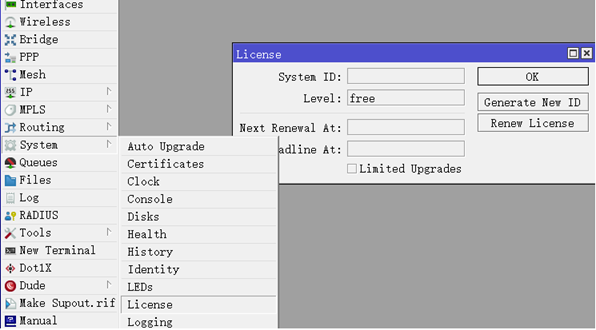

The 60-day free trial license is available for all paid license levels.

However, you are allowed to license both systems individually. Please note that running CHR systems can be cloned and copied, but the copy will be aware of the previous trial period, so you cannot extend your trial time by making a copy of your CHR. The default user is 'admin', without a password

We provide 4 different virtual disk images to choose from. Warning: We do not recommend using the E1000 network interface if better synthetic interface options are available on a specific Hypervisor! How to Install a virtual RouterOS system with CHR images Note: SCSI controller Hyper-V and ESX is usable just for secondary disks, system image must be used with IDE controller! Network: Virtio, E1000, vmxnet3 (optional).Network: Network adapter, Legacy Network adapter.Disk: IDE, VMware paravirtual SCSI, LSI Logic SAS, LSI Logic Parallel.Usable Network and Disk interfaces on various hypervisors: Warning: Hypervisors that provide paravirtualization are not supported. Hyper-V on Windows Server 2008r2, 2012 and Windows 10 (Only Generation 1 Hyper-V virtual machine is supported at the moment).CHR has been tested on the following platforms: Note: We recommend allocating at least 1024MiB of RAM for CHR instances. You can get an approximate number by using the following formula: The minimum required RAM depends on interface count and CPU count. Disk: 128MB disk space for the CHR virtual hard drive (Max: 16GB).Host CPU: 64-bit with virtualization support.Package version: RouterOS v6.34 or newer.CHR has full RouterOS features enabled by default but has a different licensing model than other RouterOS versions. It supports the x86 64-bit architecture and can be used on most of the popular hypervisors such as VMWare, Hyper-V, VirtualBox, KVM, and others. Cloud Hosted Router (CHR) is a RouterOS version intended for running as a virtual machine.


 0 kommentar(er)
0 kommentar(er)
